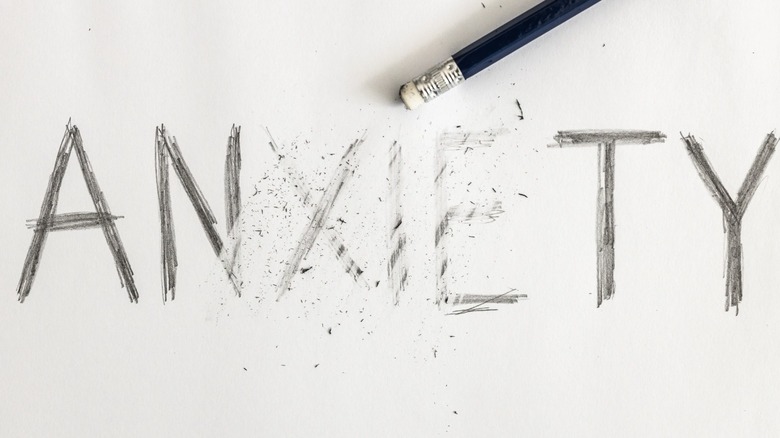Anxiety is a human response to stress (via MedlinePlus). It is associated with short-lived feelings like worry, can be accompanied by tense muscles, and motivates you to avoid things that cause you to be anxious (per American Psychological Association (APA)). The APA notes that anxiety — a long-term response toward a future concern — is distinct from fear, a short-term response toward a present danger. When anxiety lasts for a long time and worsens, it may constitute an anxiety disorder, which can negatively affect a person’s quality of life and performance (per MedlinePlus).
Anxiety disorders are a widespread issue that affects nearly 4% of the global population (per Statista). The National Alliance on Mental Illness estimates that over 40 million adults in the United States have an anxiety disorder. Further, a 2024 study published in the Journal of the American Medical Association Pediatrics found that 9.2% of children in the United States aged 0 to 17 were diagnosed with anxiety by the year 2024. Here’s why it is important to talk to your doctor — honestly and transparently — if you deal with symptoms of anxiety.
Many people do not seek treatment for anxiety

According to the American Psychiatric Association (APA), numerous people do not seek treatment for issues with anxiety. Why? Some people do not understand that an anxiety disorder is a medical condition that can be treated by a number of healthcare professionals, including your primary physician, a psychologist, a psychiatrist, or a psychiatric nurse practitioner (via Healthline). It is important to be honest with your doctor. A lack of transparency can negatively impact their ability to assess and ultimately help you (per University North Carolina Health Talk). You should be able to trust your doctor when sharing sensitive health information — meaning that you trust that your doctor will ethically protect information that you share in confidentiality (per American Medical Association). Notably, your doctor may disclose information if required by law, if you aren’t fit to make decisions, or if you may be of potential harm to yourself or others.
Healthline says that when it comes to anxiety, talking to your doctor can help determine if the anxiety symptoms are coming from another condition like an illness, hormone imbalance, or even side effects from medication. If your doctor determines that you have an anxiety disorder, you have many options for treatment. For example, two popular treatment options are psychotherapy, including cognitive behavioral therapy (CBT), and/or medications (per APA). Psychotherapy and medications are often used in tandem (per Healthline). You can also try to manage stress with techniques like meditation, or even join a support group.








